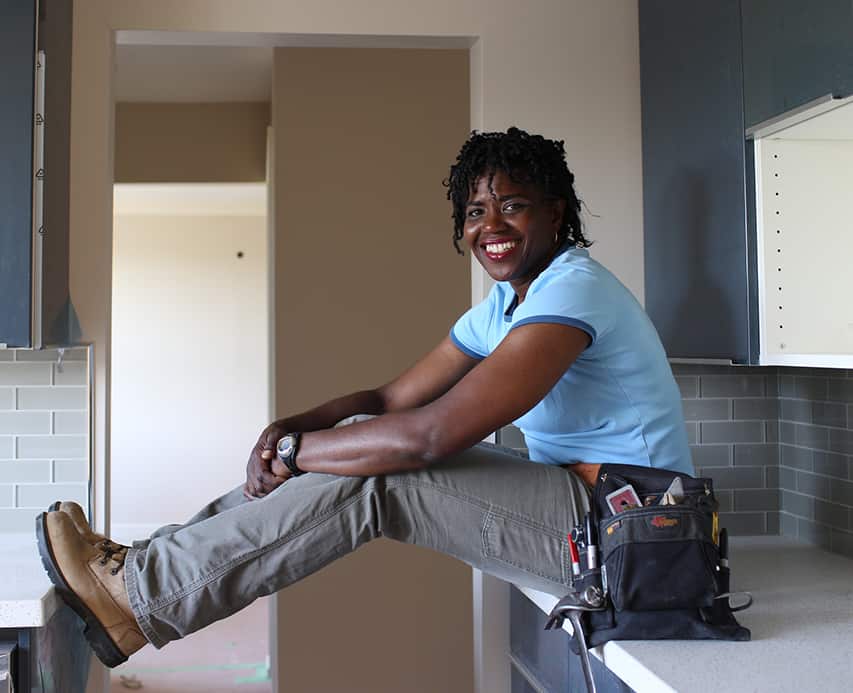“Every year, I go back and talk to new students in the program. My advice for women going into the trades is to pursue it as if it was any other occupation.”
After finishing a skilled trades program in carpentry, Elizabeth Small is building a new future as the owner of a renovation company and paving the way for other women in skilled trades. As told to Jessica Howard in the fall 2015 issue of SHE magazine.
I came out of school not really knowing what I wanted to do with my life. Skilled trades came way, way after. After I went through a series of jobs that I wasn’t really interested in, a family friend invited me to get involved in buying an investment property that we would renovate and rent. I started to learn renovation skills, and that led to working for a construction company. During my last job with the company, I realized everything I was learning was wrong. They asked me to work on a shower and it was so wrong they had to rip it all out. I definitely didn’t have enough formal training. I applied to the Enhanced General Carpentry for Women program because I wanted to learn the right way and go further with my career. Everybody works in the trades on seniority, and I wasn’t going to spend five years at the very bottom. Once I got the call to say I was accepted in the program, I was over the moon.
My instructor always used to joke that my favourite phrase was “Really?!” I was often in disbelief in class, because it was so different from the way I had been taught. I was excited, though, because I finally understood what I was doing wrong and why. When I graduated, I saw myself working as an employee to learn the next level of carpentry. But one of my former co-workers asked if I could build her garage. So I looked over the plans and said, ‘We can do this,’ and I got two other women from the program to work with me. If I hadn’t done the garage, I never would have gotten incorporated or started my own company, Arriba Contracting. Ever since, I’ve gotten work by word of mouth. I’ve never advertised.
What I’ve noticed is that the home is typically the woman’s place; she decorates it, she furnishes it. If she’s hiring a contractor, there’s a connection to see a female in that role. I think I’ve gotten a lot of jobs because I’m a woman. I’m not going to kibosh that—I’m going to go with it!
I hire people who’ve graduated from the program because it makes my job 10 times easier when I don’t have to break bad habits. I also want women and men on my crew because it shows that they can work together. For women, it can be hard to get a job in this industry. It’s tough convincing guys to give us a chance. Every year, I go back and talk to new students in the program. My advice for women going into the trades is to pursue it as if it was any other occupation. If you wanted to be a rock star, you wouldn’t say, ‘Well, it’s a male-dominated field.’ You’d be strummin’ away on your guitar, or belting out a song to show them what you’ve got. Same thing here.
The Enhanced General Carpentry Program, which is delivered by the Centre for Skills Development and Training, has received funding from the Canadian Women’s Foundation.



